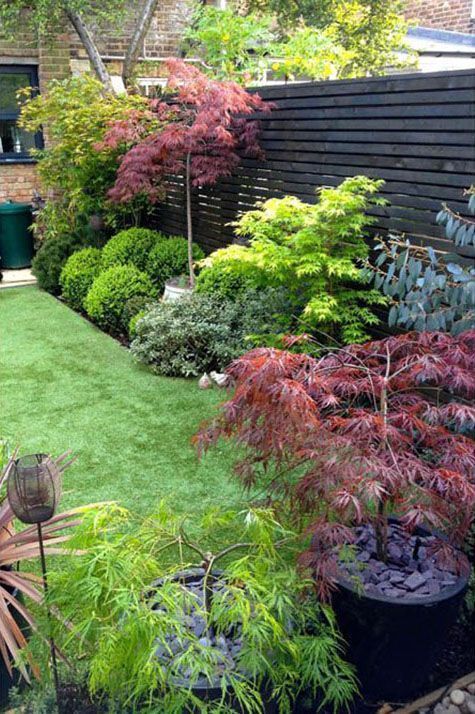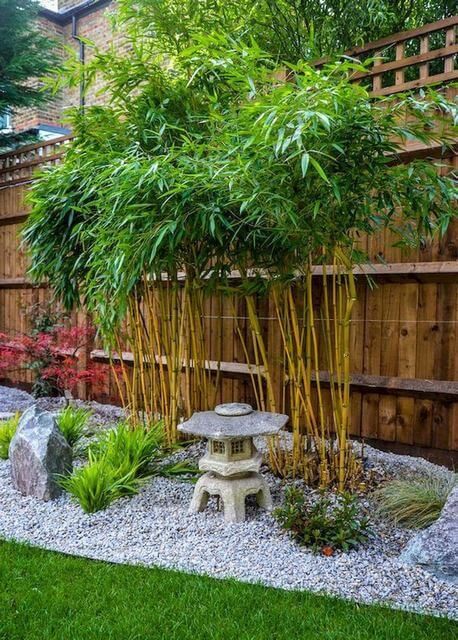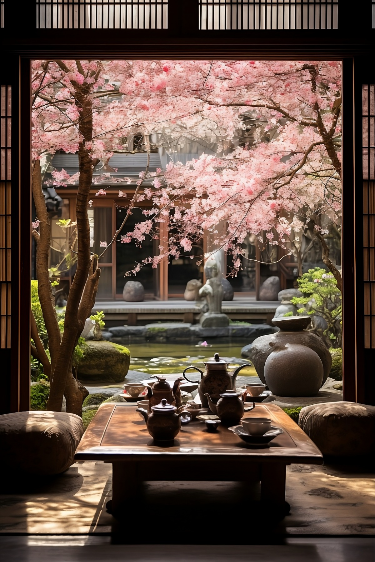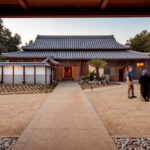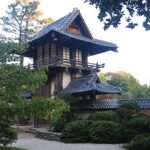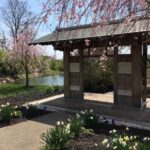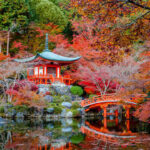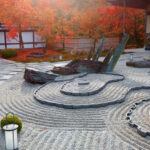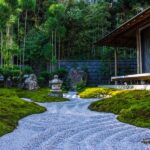Japanese gardens have been admired and recreated around the world for their peaceful and serene beauty. These gardens are carefully designed to evoke a sense of tranquility and harmony with nature. They typically feature elements such as rock formations, water features, bridges, and carefully manicured plants, all of which are arranged in a harmonious and balanced way.
One of the key principles of Japanese garden design is the concept of “wabi-sabi,” which values simplicity, imperfection, and the passage of time. This is reflected in the use of natural materials such as stone, bamboo, and wood, as well as the incorporation of moss and other elements that add a sense of age and character to the garden. The overall effect is a serene and contemplative space that encourages visitors to slow down and appreciate the beauty of the natural world.
Another important aspect of Japanese gardens is the use of symbolism and metaphor. For example, the placement of stepping stones in a zigzag pattern may represent a journey through life, while the use of bamboo groves can symbolize resilience and strength. These subtle touches add depth and meaning to the garden, inviting viewers to reflect on their own lives and experiences.
Water features are a common element in Japanese gardens, with ponds, streams, and waterfalls often used to create a sense of movement and vitality. The sound of flowing water is believed to have a calming effect on the mind, helping to create a sense of tranquility and peace. Many gardens also incorporate koi ponds, where colorful fish add a sense of movement and life to the space.
In addition to the traditional elements of Japanese garden design, many modern gardens also incorporate contemporary features such as sculptures, lighting, and other artistic touches. These elements add a sense of creativity and innovation to the garden, while still maintaining a sense of harmony and balance with the natural surroundings. The result is a unique and engaging space that reflects both tradition and modernity.
Overall, Japanese gardens are a beautiful and timeless expression of the natural world. By carefully integrating elements of design, symbolism, and tradition, these gardens offer a peaceful and contemplative retreat from the hustle and bustle of everyday life. Whether visiting a traditional garden in Japan or exploring a modern interpretation in a different part of the world, experiencing a Japanese garden is sure to inspire a sense of wonder and appreciation for the natural world.
 yishifashion Where Outdoor Dreams Become Reality
yishifashion Where Outdoor Dreams Become Reality
